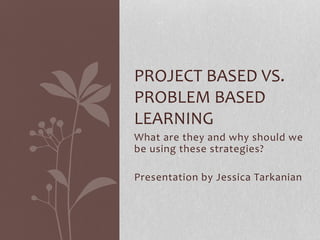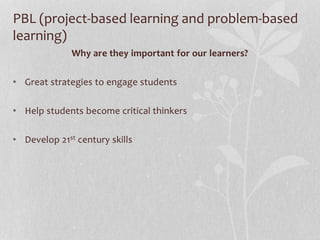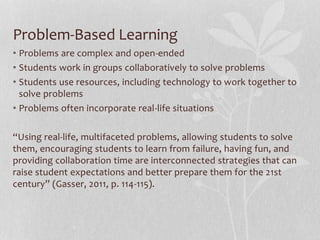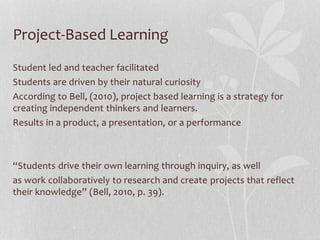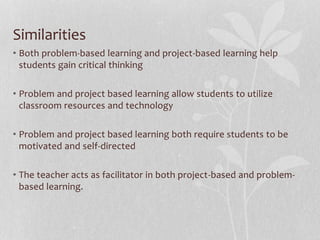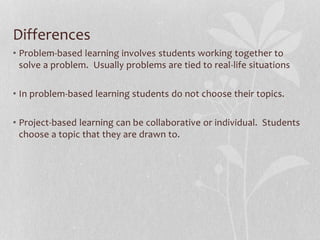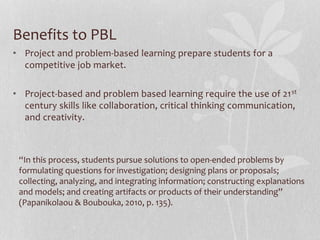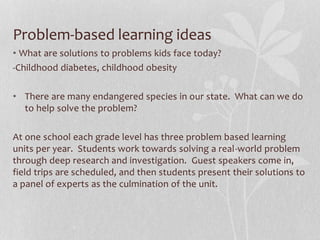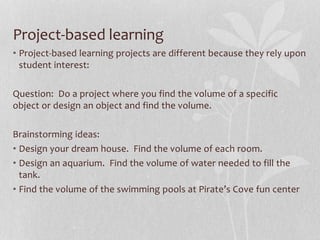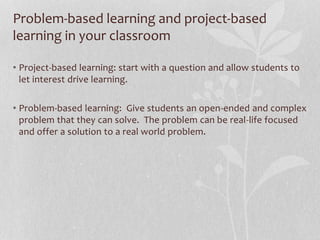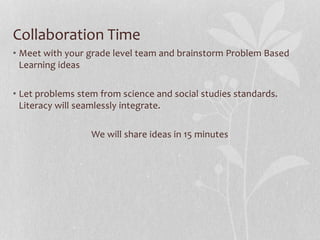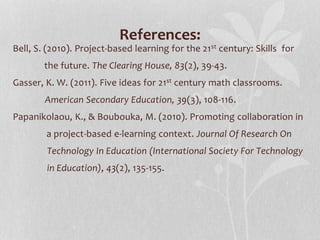This presentation discusses project-based learning (PBL) and problem-based learning (PBL) strategies and their benefits for students. Both approaches engage students through open-ended, real-world problems and projects. They develop critical thinking, collaboration skills, and help prepare students for 21st century careers. While similar, problem-based learning focuses on solving complex problems, often related to science or social studies standards. Project-based learning allows student-driven inquiry based on their interests. Both require students to research and develop solutions or products to demonstrate their understanding.
